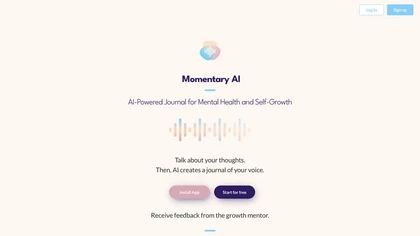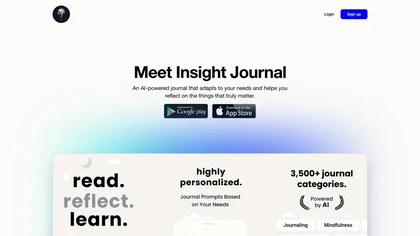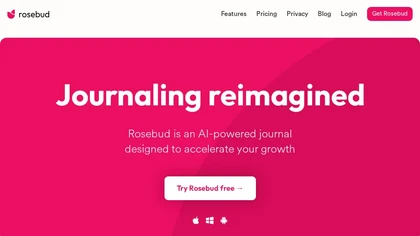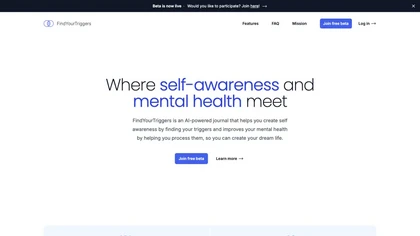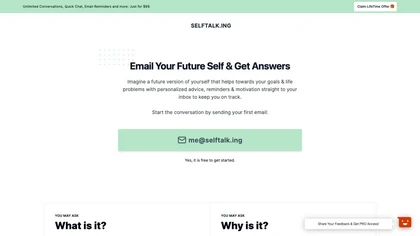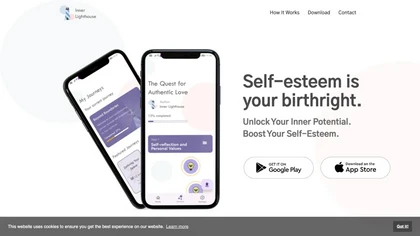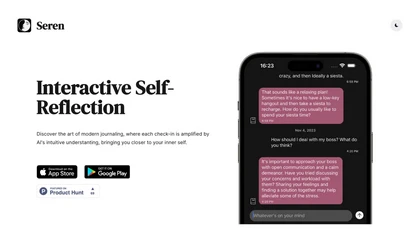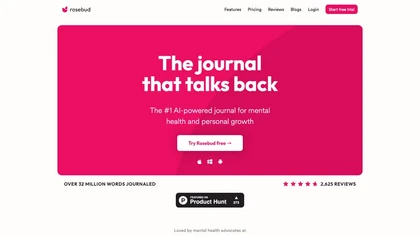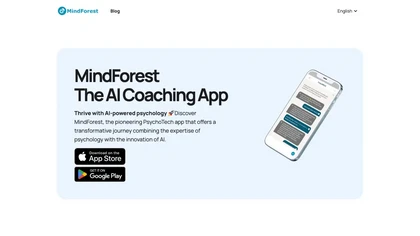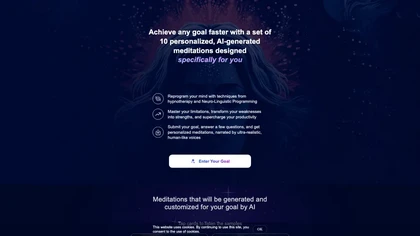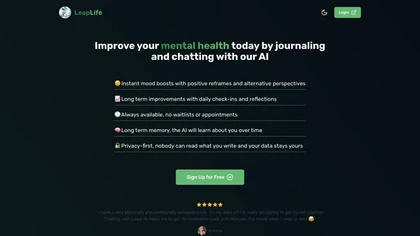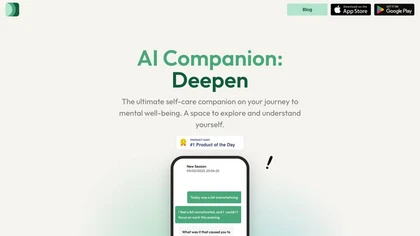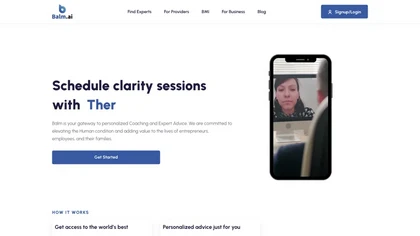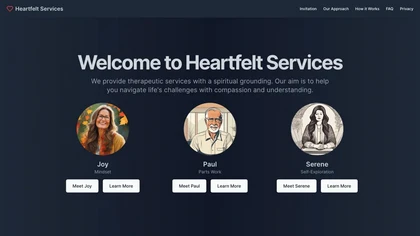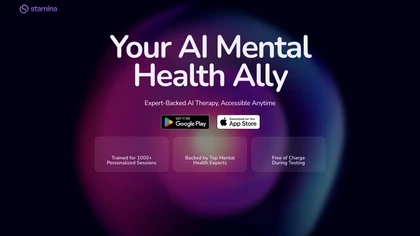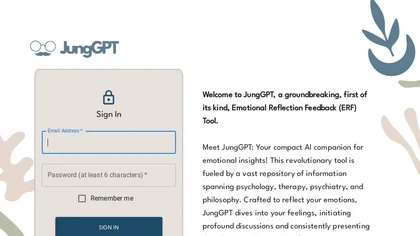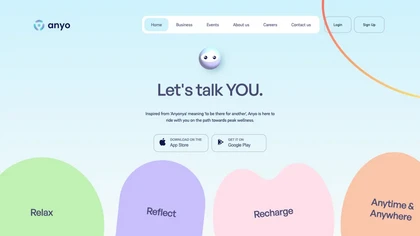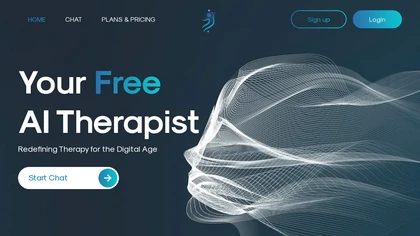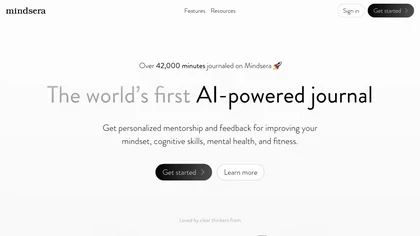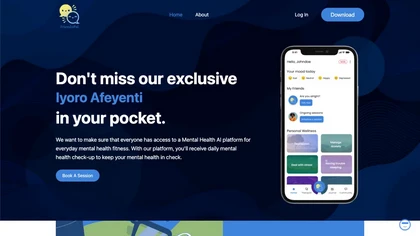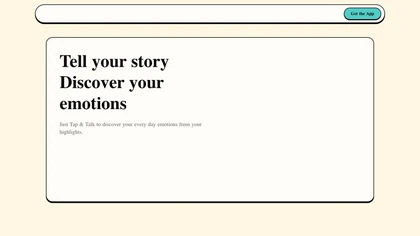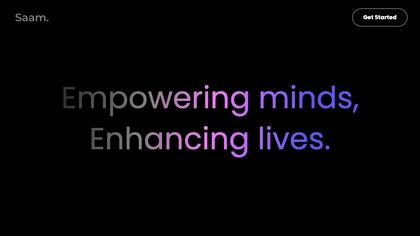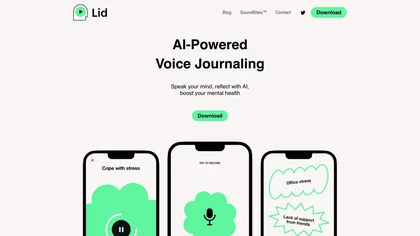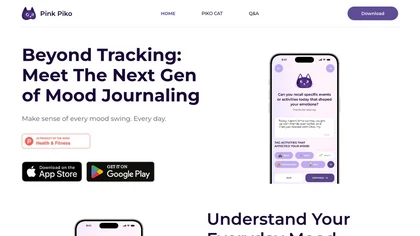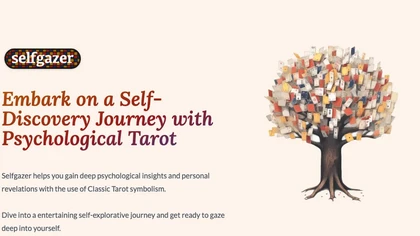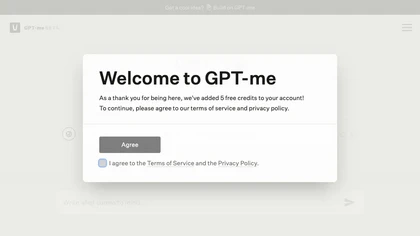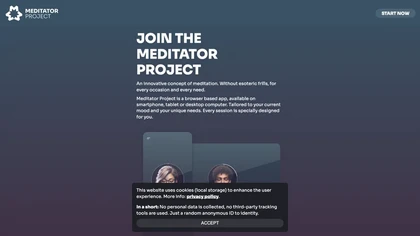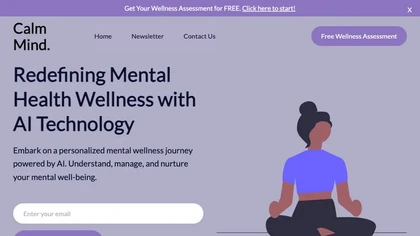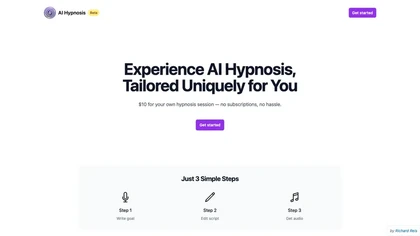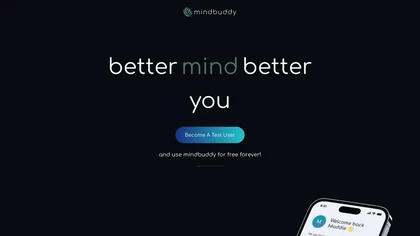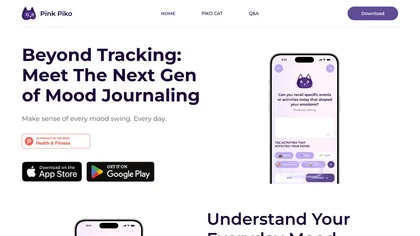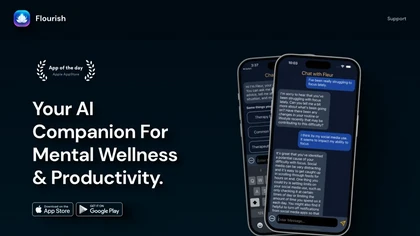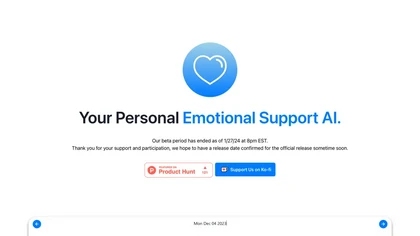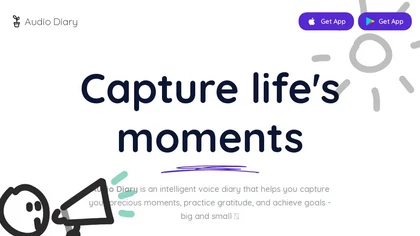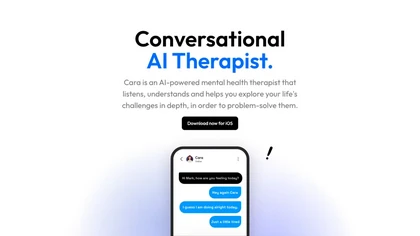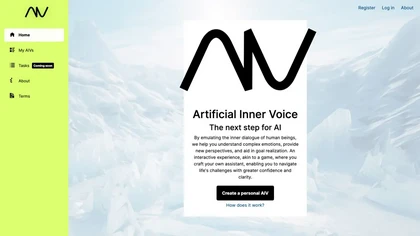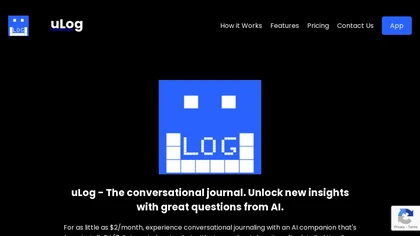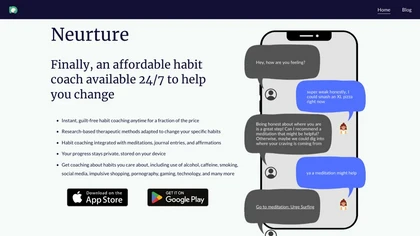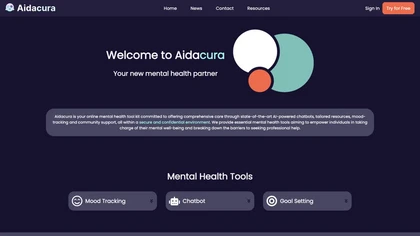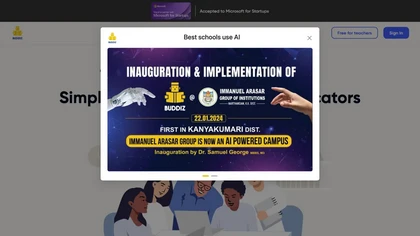AI use cases for Digitalself-reflection
Generative AI can be applied in various applications for digitalself-reflection. Here are some examples to explore below for inspiration with AI tools to get you started with using AI in digitalself-reflection.
🛠️ 70 AI tools for Digitalself-reflection
Explore a dynamic list of some of the most popular tools to get you started with various AI use cases and applications for Digitalself-reflection to streamline your workflows and productivity today.
Momentary features
- AI-powered journaling experience
- Voice-activated journaling
- AI-powered transcribing
- Mood categorization
- Supportive AI mentor
MoodPen features
- Real-time reflection
- Personal growth tracking
- Automated journal reflections
- Personalized feedback and suggested actionable steps
- Multi-lingual support
Insight Journal features
- AI-powered
- Intuitive interface
- Organize thoughts
- Track progress
- Privacy and security
Insightful features
- Provide personalized on-demand coaching
- Focus on specific needs
- Available anytime, anywhere
- Blog with latest insights on living a fulfilling life
- Accountability coaching to help young professionals reach full potential
6000 thoughts features
- Organize thoughts
- Clarify thinking
- Identify biases
- Achieve breakthroughs
- Self-reflection
Rosebud Journal features
- Analyzing thoughts
- Organizing into themes and topics
- Extracting insights
- Uncovering patterns
- Auto-tagging entries
FindYourTriggers features
- AI-powered journal
- Generates prompts based on user input
- Tracks user moods
- Identifies and processes behavior triggers
- Supports a structured three-step plan of assessment, planning, and implementing
🔥
Create your account, save tools & get personal recommendations
Receive a weekly digest of our handpicked top tools.
Unsubscribe anytime
Selftalk.ing
4.9Selftalk.ing features
- Unlimited conversations with future self
- Quick chat interface
- Email reminders
- Personalized advice and motivation
- Access to past conversations
Inner Lighthouse features
- Structured approach towards self-esteem improvement
- Variety of expertly curated journeys
- Daily 10-minute cognitive exercise sessions led by professional psychologists
- Privacy and security measures
- Integration into daily routine for well-being enhancement
Seren features
- AI-powered interactive self-reflection journaling tool
- AI chat functionalities for insightful feedback and guidance
- Delve deeper into emotions and thoughts
- Secure and private space for self-discovery
- Encrypted conversations and focus on privacy
Rosebud features
- Daily check-ins
- Auto-tagging key insights
- Identify meaningful goals
- Track people, topics, and moods
- Emotionally-focused capabilities
Clearmind features
- To-Do lists
- Mood cards
- Meditation scripts
- Chat
HeartDialog features
- 24/7 availability
- Personalized conversations
- Privacy protection
- Context tracking
- Integration of journaling, meditation, and CBT
MindForest features
- AI-powered psychology for personal growth
- Insight Journal feature for automatic journaling
- Tailored insights and exercises based on psychological principles
- Psychometrics assessments for understanding personality facets
- Integration of psychology expertise with AI innovation
Neomind features
- Personalized meditations generated by AI
- Utilizes hypnotherapy and neuro-linguistic programming techniques
- Customization based on user's specific goal and needs
- Narrated by ultra-realistic, human-like voices
- Accompanied by a 53-page workbook with science-backed exercises and NLP techniques
LeapLife features
- AI chat function
- Personalized chatting AI
- Daily journaling
- AI therapists chat
- End-to-end encryption
Deepen features
- Chat sessions with AI companion
- Guided conversations
- Insights dashboard
- Supports exploration and understanding of emotions
- Aids in decision-making
Ponder features
- Tailoring guided meditations to emotional needs
- Personalizing meditations based on current emotions and situation
- Offering flexible meditation options
- Providing structured courses for meditation
- Adapting to support the user's self-discovery and growth journey
Vital features
- Personalized audio-guided sessions
- Selection of eight specific meditation techniques
- Six different AI meditation coaches
- Automated email guidance
- Community building through practice comparisons and point system
AtFirst features
- Affirmations
- Relaxation sessions
- Self-help guides
- Community feature
- Guided sleep affirmations
Pagefelt features
- Web app
- Journal daily
- Instant custom feedback
- Ai-generated bookmarks
- Improve mental health
IX Coach features
- Goal setting
- Obstacle overcoming
- Action planning
- Social interaction understanding
- Communication improvement
Balm.ai features
- Personalized coaching
- Access to top experts
- 1-on-1 virtual sessions
- Tailored advice
- Convenient expert connection
Space of mind features
- Affordable PTSD support
- Facilitated peer support
- Anonymous therapist help
- Licensed therapist-guided sessions
- Range of support spaces
Heartfelt Services features
- Virtual therapists (e.g., Paul and Serene)
- Innovative approach to self-exploration and healing
- Confidentiality prioritization
- Non-judgmental space for users
- Team of dedicated therapists
Dr. FeelGood features
- Personal AI motivational coach
- Human-like understanding
- Powerful motivational capabilities
- Available 24/7
- Coaching sessions anytime needed
EpicTopia AI features
- Life journey tracking
- AI-generated insights
- Tailored action plans
- Personalized chronicle on a timeline
- Detailed guidance
Stamina AI features
- Expert-backed AI therapy tool
- Over 1000 personalized sessions
- Cognitive behavioral therapy techniques
- 24/7 availability
- Personalized support from a team of 200+ mental health professionals
Well Me Right features
- AI matching and Health Coach capabilities
- Personalized coaching
- Dietary tracking, nutritional guidance
- Guided meditation sessions
- Adaptive health partner
JungGPT features
- Emotional reflection
- Emotional support
- Personal growth
- Self-reflection
- Therapeutic exploration
Anyo features
- Personalized self-care activities
- Resilience building through Carebox
- Real-time connections with listeners
- Seamless booking of therapist appointments
- High-quality content in yoga, psychology, meditation
Therapy with AI
4.9Therapy with AI features
- personalized therapy
- learns from conversations
- provides guidance
- effective coping strategies
- privacy and confidentiality
Mindsera features
- Mentor model
- Mindset analysis
- Automatic summaries
- Habit tracking
- Dark mode
FriendnPal features
- virtual one-on-one chats with therapists
- supports various African languages
- booking therapy sessions online
- ASMR sounds for relaxation and stress relief
- digital journal for mood tracking
DayBright: Daily Inspiration features
- Delivers daily wisdom nuggets across various topics
- Allows sharing and saving advice easily
- Provides scientifically backed content
- Offers interactive widgets for quick access to inspirations
- Auto-refresh feature and customizable notification settings
Journalie features
- Transcription of entries
- Automatic organization in a calendar format
- Social sharing features
- AI-generated unique pages
- Enhanced journaling experience
Buddha AI features
- Interactive chat functionality
- AI technology powering the tool
- Ability to discuss concerns and seek guidance
- Explore Buddhist teachings
- Provide thoughtful responses
Mynd features
- Key themes
- Emotions
- Patterns
Drsaam features
- Journaling
- Friend integration
- Confidentiality
- Privacy
- Security
Lid features
- Voice note journaling
- AI-powered analysis of voice entries
- Password protection for journal entries
- Face ID access security feature
- Creation of personalized soundbites
PinkPiko features
- Mood tracking
- Interactive experience
- Insightful questions
- Personalized emotional insights
- Actionable insights
Selfgazer features
- Tarot reading
- Self-discovery
- Entertainment
- Personal revelations
- Psychological insights
Mood AI by Mindset features
- Daily check-ins
- Daily reflections
- Expert advice
- Daily quotes
GPT-Me features
- Converse
- Restart
- Inner voice
- Crowded places
- Solitude
BodyGuru features
- Personalized wellness routines generation
- Tailored recommendations
- Free platform
- Upcoming features integration
- Developed by JBBAE
Meditator.pro features
- Browser-based app
- Available on smartphones, tablets, and desktops
- AI-guided meditation tool
- Choose between two AI coaches
- Specially designed meditation sessions
CalmMind features
- Wellness assessment
- Calmmind chat
- Curated wellness programs
- Therabot
- Community support
AI Hypnosis App features
- Customized hypnosis sessions tailored to individual goals
- Ability to input goals and edit scripts for personalized audio files
- Utilizes OpenAI Elevenlabs for audio generation
- Secure transactions through leading financial service Stripe
- No subscriptions, just a one-time payment for tailored sessions
mindbuddy app features
- Specially trained chatbot 'buddy'
- Specialization in cognitive behavioral therapy (CBT)
- Personalized guidance through AI
- Track mood and access past chat sessions
- Continuous learning and adaptation capabilities
Pink Piko features
- Interactive tracking experience
- Insightful questions for emotional reflection
- AI-powered technology for interpreting mood logs
- Personalized emotional insights
- Transforms emotional data into tangible insights
Quillow features
- built-in flow timer
- strikethrough function
- AI-powered insights
- subconscious mind tapping
- safety and privacy of user data
Flourish features
- Meaningful Conversations
- Psychology-based Mental Health Assessments
- Stress Relief Tools
- Productivity Tools
- Quality Mental Health Support
Reassurance AI (Beta) features
- Interactive chatbot named Sai for guidance and advice
- Personal journal for logging thoughts and self-reflection
- Customization options for fonts, sizes, and speech voices
- Tracking of interactions with Sai and journal entries
- Subscription for updates on future releases and features
Audio Diary features
- Task 1
- Task 2
- Task 3
- Task 4
- Task 5
Personalities.ME features
- Personality exploration
- Career guidance
- Relationship insights
MyCody features
- Streamline career journaling process
- Centralize career management
- Track achievements, goals, and learning experiences
- Provide insightful analysis summaries of career logs
- Offer personalized goal-setting and organization through customizable tags
Faith features
- Multi-faith insights
- Personalized guidance
- Free chat functionality
- Contribution option
- Comprehensive spiritual wisdom
Cara features
- Conversational AI therapist
- Powered by GPT
- Natural responses and advice
- Insightful and non-judgmental guidance
- Available on iOS
Artificial Inner Voice features
- Emulates inner dialogue of human beings
- Helps users understand complex emotions
- Provides new perspectives
- Functions like a game
- Serves as a personal assistant
Ulog features
- Create detailed timelines
- Intelligent ai companion
- Set reminders
- Track various topics
- Customizable reminders
InspireAI features
- Personalized affirmations
- Motivations for health, fitness, and mindset
- Endless supply of positive mindset quotes
- Smart suggestions
Neurture features
- Affordable habit coaching
- 24/7 availability
- Utilizes research-based therapeutic methods
- Integrated with meditations, journal entries, and affirmations
- Allows digitization of handwritten journal entries
MindwellAI features
- Self-care
- Coping tools
- Journal writing
- Coaching
- Anxiety management program
Txt Your Ex features
- Replace negative words with positive ones
- Encourages healthier communication
- Provides a secure space for sharing
- Designed for personal growth
- Supports mindful communication practices
Virtual Sapiens features
- AI communication coach
- Presence portal for skill assessment and improvement
- Simulated conversations for feedback
- In-call coaching
- Personalized feedback on nonverbal, vocal, and verbal cues
Aidacura features
- AI-powered chatbots
- Tailored resources
- Mood-tracking
- Community support
- Natural language processing
Sibyl AI features
- AI-Tech Blog featuring
- Spirituality as a feature category
- Text-to-image functionality
- Autonomous chat capability for AI agents
- Generative systems and metaphysical AI tags
Lily features
- Voice-activated AI
- Personalized guidance for mental health
- Support for anxiety, stress, self-esteem
- Digital wellness guide
- Privacy and tailored support
AIDiary features
- Mood analysis
- Grammar structure analysis
- Automatic summary generation
Buddiz features
- Personalized learning paths
- Real-time insights
- Interactive challenges
- Automated grading
- Mental health support
